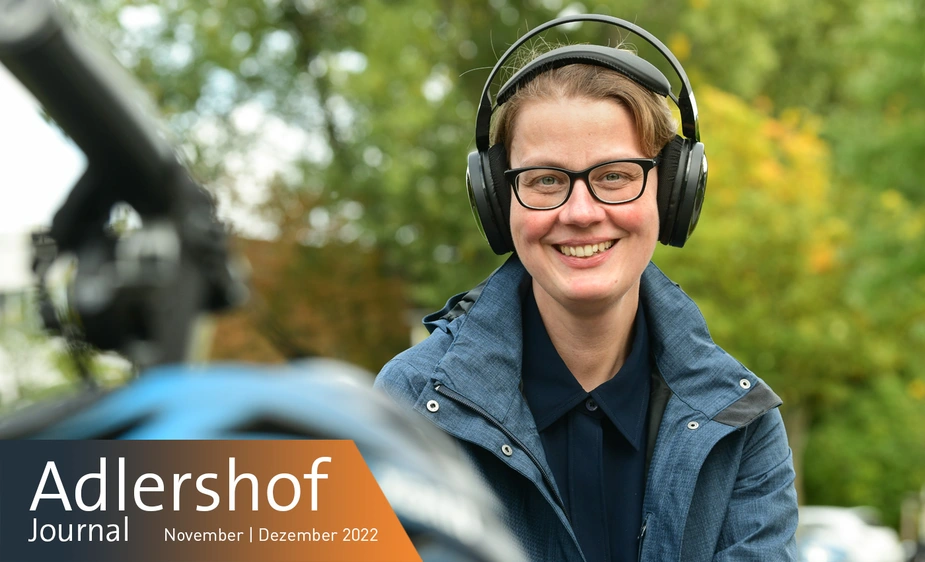The enabler
Nicole Münnich manages seven Leibniz institutes
One hour on the folding bike, 20 kilometres from Potsdam to Halensee station, morning after morning. Podcasts while cycling and, on the S-Bahn to Adlershof, working on the laptop. This is how Nicole Münnich’s workdays have been starting for 11 months now. Back then, she cleared her desk at Brandenburg’s science and research ministry, where she was in charge of digital transformation as deputy department head, and moved into her office on Rudower Chaussee. As the new managing director of Forschungsverbund Berlin e.V. (FVB).
The history of FVB goes back 30 years to the beginnings of German reunification when the research biotopes of former East Germany (the GDR) were evaluated with regard to their usefulness under the new political order. Forschungsverbund Berlin was founded as an umbrella organisation to jointly manage the eight institutes that passed the test in the natural, engineering, life, and environmental sciences and were henceforth part of the Leibniz Association. One of the institutes left in 2021.
From a lifetime position in the senior ministerial service to a temporary employment contract with a registered voluntary association, Münnich's biography has always been characterised by an inclination to bold new beginnings. Even as a thirteen-year-old schoolgirl in her hometown of Plauen, where, after unification, she went to the local tennis club, hitherto reserved for the “GDR elite”, and asked whether she could now join. With similar carefreeness, she later reported on the local tennis scene for “Vogtland-Anzeiger”, a local newspaper, for several years.
This turned into an early career as a sports journalist and a local reporter, a traineeship at a newspaper, and, finally, an editor position, which Münnich moved away from after just two months. She had other burning issues to deal with: How could it be that Yugoslavia, the dream country of her socialist childhood, was bogged down in secession wars “seemingly out of nowhere”? “Everybody said it was because of its history – okay, let’s study that history.”
Münnich’s master’s thesis at the University of Leipzig, therefore, focused on the topic of how Yugoslavia came to terms with its history after the presidency of Josip Broz Tito. Leading her to New York and Washington for research stays, she received the Dissertation Award of the Southeastern Europe Society for her PhD thesis on urban development and urban society in 1960s Belgrade. However, she did not see herself as a university lecturer.
She found the administrative side much more interesting. “Enabling” is her number one keyword. “It’s about enabling science and research by creating best-possible conditions.” She loves the process of constant change that research management demands. Did she ever think that she would be dealing with energy prices? “I am permanently confronted with new things, changing things that I have to suss out.”
Her heart is still in sports though, too. It beats particularly fast for Eintracht Frankfurt. A strange choice for a Saxonian who emigrated to Berlin? “It’s what marriage does,” says Münnich. Her husband, who teaches Southeast European History at Humboldt University, is from the city on the Main.
Dr. Winfried Dolderer for Adlershof Journal
